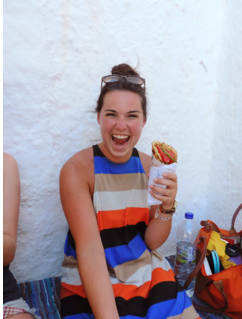A few months ago my Mom told me about the Fed Up movie--have you heard about it? It is basically a documentary that talks about the food industry and how much added sugar Americans consume on a daily basis. Watch the trailer here:
I read about the challenge and thought I could definitely do it. I should not be eating added sugar any day of my life, so I could at least go 10 days, right? It was more difficult than I thought! I think I am going to try this challenge again...starting tomorrow.
Read about the challenge and the rules here.
This challenged really helped me become better at reading labels. At the grocery store, I typically look at 4 parts of a nutrition label: Carbohydrates, Fiber, Sugar and Sodium. I look at how many grams of each are in the product. However, now I am better at looking at the actual ingredients listed. Katie Couric explains that a food label may show that it is low in sugar, but in the ingredients you can find all of the dangerous sugar chemicals that have been added. At the top of this post is a list of all the names for sugar. Watch out for these + if you see it listed, do NOT buy it.
Products you should stay away from that are not obvious include:
- crackers
- Nutrition bars/granola bars
- bread
- pasta
- sauces/condiments/dressings
- alcohol
Challenge yourself to complete this and WATCH the movie! It has some great information and is truly shocking.
The DiaBlogger







